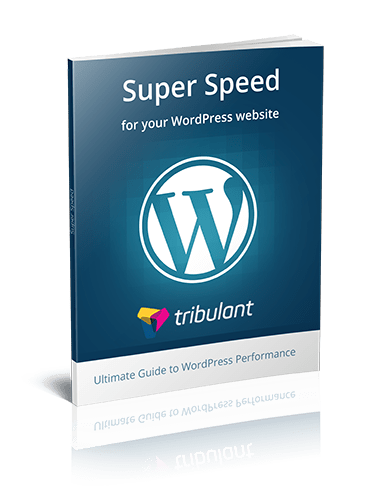
Is A VPN Still Necessary When Most Of The Online Traffic Is Encrypted?

Every Internet user knows the importance of online privacy and security. Online users take advantage of various technologies for protection because if they don’t take any measures, they can jeopardize their online data.
HTTPS and VPN are two such technologies that can be used to protect online privacy and security. These two technologies are very popular, and knowing about them can benefit you whether you use a free VPN online or a paid one.
This post lets you know more about HTTPS, VPNs, and the distinctions between them.
What Is Encryption?
The security of online communications using VPN and HTTPS is significantly improved by encryption. VPNs utilize encryption to protect data from potential eavesdroppers while being transmitted from the user’s device to the VPN server. HTTPS uses encryption to protect data transferred between web browsers and websites, preventing illegal access to confidential data. By ensuring anonymity, reliability, and integrity, these encryption techniques improve anonymity while lowering the possibility of information theft and cyberattacks.
Where does HTTPS and VPN meet?
HTTPS and VPN serve as the two key components of online security. Users often contemplate which one is better, yet doing so is like distinguishing two different but equally valuable tools. Each technology has a distinct function, making it indispensable in certain situations. Recognizing their contributions to internet protection is preferable to judge which is superior.
What Is HTTPS?
Browsers communicate with web servers via HTTPS or Hypertext Transfer Protocol Secure. It uses TLS (Transport Layer Security) encryption, the most modern and secure version of HTTP, to protect the information you send to websites. When you access an HTTPS site, neither your Internet service provider (ISP) nor anybody else monitoring your traffic can tell what content you saw, simply that you are connected to the website.
What Is A VPN?
An encrypted connection, often known as a tunnel, is created between your device and an insecure network, such as the Internet, using a free VPN online. Nobody can track your online activities because traffic passes via the VPN’s server rather than your ISP.
All that will be visible to everyone, from ISPs and corporations to advertising and governments, is that you are connecting to a VPN. Furthermore, a different IP address is used to mask your IP address, making it practically difficult to identify you from your online activity.
Business VPN Vs. Personal VPN
Although they operate on the same principles, personal and business VPNs serve distinct functions.
A personal VPN is designed with the requirements of specific users in mind. Personal VPNs are used by people who wish to secure their online communications and conceal their IP addresses, mostly for recreational uses like web browsing, torrenting, and accessing geo-restricted content. The purpose of a personal VPN is to protect the user’s privacy. When you connect to a personal VPN, your web traffic is securely transmitted through a secure VPN server, avoiding snooping on your online activity.
Conversely, companies and professional organizations use a business VPN to provide their remote staff safe access to business information and applications. A business VPN offers secure access to cloud-based assets, making it a crucial security tool for companies. Business VPNs apply a similar strategy but focus more on the business’s requirements than the user’s. A business VPN still encrypts your traffic and routes it through a secure server to protect the confidentiality of company data.
Both personal and business VPNs function essentially the same way: they mask users’ IP addresses and route their web traffic over an encrypted VPN tunnel to mask their online behavior. You can get discounts on a variety of personal and business VPNs from VPN.Coupons.
VPN And HTTPS: Which Is Needed For Business Internet Security?
To provide reliable business internet security, both VPN and HTTPS are necessary. Virtual private networks, or VPNs, create secure connections between a user’s device and a company’s network to protect data when logging in remotely and on open networks. This helps keep confidential information safe from snoopers. Web browsers and websites can communicate securely using HTTPS (Hypertext Transfer Protocol Secure), which protects against data alteration and unwanted access. It enhances security and integrity by encrypting data sent between the browser and the website.
Businesses can build an integrated security framework that defends network connections, data transfer, and sensitive data, reducing the risks of cyber-attacks and data breaches. This framework can be created by integrating VPNs with HTTPS.
Summary
For internet security, VPN and HTTPS are both essential technologies. In contrast to HTTPS, which guarantees safe transmission between browsers and websites, VPNs establish secure connections for remote access and protection on open networks. Comparing them is equivalent to comparing two unique but equally useful tools. VPNs and HTTPS, which secure network connections and data transmission, respectively, are essential for business internet security.
Businesses may build a strong defense against cyber risks by combining VPNs with HTTPS, protecting sensitive data’s security, privacy, and integrity while using remote access and accessing the web. With this all-encompassing strategy for business internet security, risks are reduced, and protections are in place against data theft and unauthorized access.

I am the owner at Tribulant Software and I have a great passion for WordPress, development, blogging and the Internet in general. Building useful plugins to improve WordPress’ functionality is my goal.
WordPress Plugins
Start selling products, sending newsletters, publishing ads, and more through your own WordPress website using our premium WordPress plugins.




No comments yet